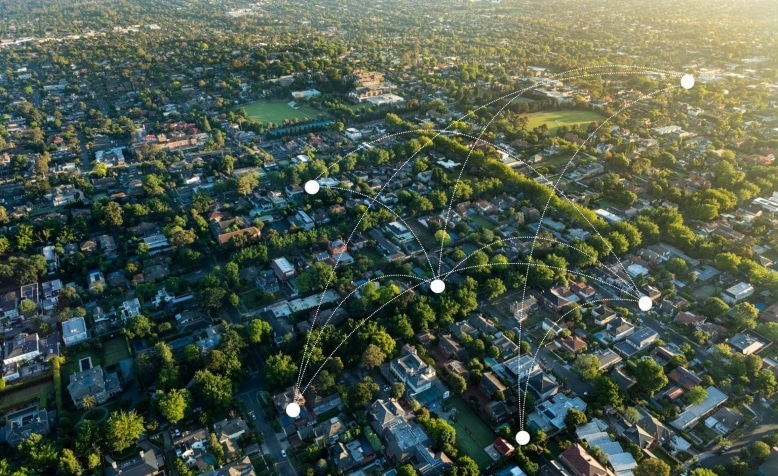Broadband Office Name: Kansas Office of Broadband Development (KOBD)
BEAD Award Amount: $451.7 M
Kansas Broadband Director: Joseph Le
Website: https://www.kansascommerce.gov/officeofbroadbanddevelopment/
Kansas BEAD Program Tracker
| State | IP Vol 1 Approval | IP Vol 2 Approval | Challenge Process Submission Closed | Challenge Process Final Determination Phase Completed | 1-Year Subgrantee Selection Process |
|---|---|---|---|---|---|
| Kansas | Yes | Yes | Yes | Yes | Yes |
Kansas BEAD Program Information

Key Updates
NTIA has approved the Kansas Office of Broadband Development (KOBD) BEAD Initial Proposal Volume 2. This authorizes the KOBD to begin the Subgrantee Selection Process.
The Pre-Registration portal is open and linked here. Registration is open throughout the BEAD Sub-grantee Application period, which closes 45 days after the Technical Application opens, tentatively scheduled for mid-August.
Preliminary Project Funding Areas are pending approval from NTIA:
The preliminary list of eligible Broadband Serviceable Locations (BSLs) and their designated PFA are located here. This is a preliminary .csv file that will be downloaded to your computer. As a reminder, these “areas” are more accurately described as “lists” of eligible BSLs.
Funds plan to be disbursed to Kansas in Q3 of 2024.
Kansas BEAD Program Plans & Maps
Kansas BEAD Program Initial Proposal Volume 2: Overview
BEAD Long-Term Objectives
The Kansas Office of Broadband Development (KOBD) has outlined the following goals and objectives:
- Ensure affordable universal broadband coverage to every home, business, farm, and CAI.
- Leverage innovative solutions and “future-proof” technologies for broadband deployment and accessibility.
- Continue to develop and evolve the digital economy throughout the state.
- Ensure all Kansans can live, learn, work, play and compete regardless of where they live in the state.
Kansas BEAD Program Project Area Design
Project Funding Areas (PFAs) are now lists of BSLs divided into smaller areas to facilitate more manageable and competitive applications.
Preliminary Project Funding Areas are pending approval from NTIA:
Please find the preliminary list of eligible Broadband Serviceable Locations (BSLs) and their designated PFA located here. This is a preliminary .csv file that will be downloaded to your computer. As a reminder, these “areas” are more accurately described as “lists” of eligible BSLs.
Kansas BEAD Program Extremely High Cost Threshold
KOBD will be utilizing the NTIA CQA model to review applications as a way to assess cost-reasonableness. On KOBD’s website they stated, “High Cost as designated by the FCC and the NTIA are only for specific sections of Miami and Wilson counties.“
BEAD Deployment Subgrantee Selection
KOBD is asking for the following preregistration evidence from subgrantees and compliance with: Financial capability, managerial capability, operational capability, technical capability, ownership info, public funding info, compliance with laws, cybersecurity/supply chain compliance, and BABA/EHP/NEPA/NHPA compliance.
Primary Scoring Criteria for Priority Broadband Projects
- 50 pts – Minimal BEAD Outlay
- 15 pts – Affordability
- 10 pts – Fair Labor Practices
Secondary Scoring Criteria
- 9 pts – Speed to Deployment
- 9 pts – Speed of Network and other Technical Capabilities
- 7 pts – Local and Tribal Coordination
Other Last-Mile Projects
Primary Scoring Criteria for Priority Broadband Projects
- 50 pts – Minimal BEAD Outlay
- 15 pts – Affordability
- 10 pts – Fair Labor Practices
Secondary Scoring Criteria
- 9 pts – Speed to Deployment
- 9 pts – Speed of Network and other Technical Capabilities
- 7 pts – Local and Tribal Coordination
BEAD Non-Deployment Subgrantee Selection
KOBD will not award subgrants to any non-deployment activities.
BEAD Eligible Entity Implementation
KOBD will use 2% of total allocation for the following activities in support of BEAD implementation & deployment activities:
- Development and implementation of the subgrantee selection process, including prequalification, selection, challenge, rebuttal, and adjudicative processes.
- Deduplication (post-Challenge process).
- Grant development, administration, management, reporting, monitoring, and compliance
specific to BEAD funds. - Development and refinement of cost models for the Extremely High Cost (EHC)
threshold and BEAD minimal outlay calculations. - Local coordination focused on infrastructure planning with local, regional, covered
populations, and Sovereign Tribal Nation entities. - Monitoring subgrantee performance through grant agreements and enforceable
commitments. - Mapping including funding areas, public facing maps, and dashboards.
- Data collection to support mapping, analysis, and program development.
- Successful disbursement of funds and fiscal management processes.
- Field audits of deployment projects, as needed.
- Engagement with public and private partners to augment matching funds or
infrastructure investment.
BEAD Local, Tribe, and Regional Broadband Planning Process
A list of activities and serves that KOBD has leveraged to increase broadband adoption and related activities that were included in the Initial Proposal:
- Conducted a six-month statewide “Broadband Roadshow” in the winter and spring of 2023 that served as the initial introduction of KOBD to residents, businesses, local officials, non-profits, CAIs, and associations of Kansas.
- Met with 4 Sovereign Tribal nations with the goal for each meeting to grow the relationships between key stakeholder groups and cover common topics including updates on federal, state, and tribal initiatives, infrastructure access, digital equity, and workforce opportunities.
- Created the Digital Equity Advisory Council to meet bi-weekly to inform the mission, vision, and actualization of digital equity and inclusion efforts throughout the state.
- In addition to direct meetings with ISPs, KOBD hosted two provider meetings focused on BEAD timelines, anticipated funding, planning reqs, and stressed the cooperation needed from all providers to meet our BEAD goals.
- Distributed a total of four surveys to gather statewide data.
- Established a community-based program called, “Broadband Ready Communities”.
- Created a website that provides engagements and updates across all sectors.
- Sends the Kansas Broadband Newsletter to the following communities: Agricultural communities, community champions, economic development representatives, educational institutions, healthcare centers, ISPs, local governments, and Tribal governments.
- Launched a Speed Test website for residents of Kansas. 8,657 tests have occurred so far.
BEAD Labor Standards & Protection
KOBD requires all BEAD subgrantees to submit the following information:
A record of past compliance with federal/employment laws:
- Must address info on deployment projects within the last 3 years.
- Certification form from an Officer/Director level employee of past compliance.
- Written confirmation that subgrantee has disclosed any violations from contractors within the last 3 years.
- Discussion of workforce plan
Plans for ensuring compliance with federal/employment laws:
- How subgrantee will ensure compliance in its labor/employment practices.
- Info on applicable wage scales, wage, and overtime practices for each class of employee expected to be involved in physical construction of the network.
- How subgrantee will ensure implementation of workplace safety committees.
- Comply with the Prevailing Wages Act.
- Other items as outlined in the BEAD NOFO.
BEAD Minority Business Enterprises / Women’s Business Enterprises / Labor Surplus Area Firms Inclusion
All Disadvantaged Business Enterprises (DBEs) are required to identify a NAICS code for the industries they participate in, these codes will be used to identify DBEs as relevant sources for BEAD activities and subtasks. DBEs to be solicitated on and receive contracts are certified by the Office of Minority and Women’s Business Enterprises (OMWBE) in the Kansas Statewide Certification Program (KSCP). KSCP has certified over 650 DBEs in Kansas.
KOBD has identified organizations who can assist eligible entities in this process: Asian Chamber of Commerce of Kansas City, Kansas City Kansas Women’s Chamber of Commerce, Mid-America LGBT Chamber of Commerce, Hispanic Chamber of Commerce, Heartland Black Chamber of Commerce, Kansas City Women’s Business Center, National Association of Women Business Owners (NAWBD-KS), Minority Contractors Association, Kansas Department of Commerce’s Office of Minority and Women Business Development (OMWBD), Kansas Chamber of Commerce, Black Entrepreneurs of the Flint Hills, and IBSA.
KOBD will require subgrantees to provide a DBE utilization plan:
- Assure qualified DBEs are on solicitation lists.
- Divide project solicitations into smaller subtasks when feasible.
- Establish project timelines to encourage participation by DBEs.
- Work with the Small Business Administration, the Kansas Office of Minority and Women
Business Development, and the Kansas Small Business Development Center.
Kansas is one of eighteen states without a ‘Labor Surplus Area’ greater than 8.05%.
BEAD Cost & Barrier Reduction
1. Promoting the use of existing infrastructure.
2. Promoting and adapting dig-once policies.
3. Streamlining permitting processes.
4. Streamlining cost-effective access to poles, conduits, and easements.
5. Streamlining rights of way, including the imposition of reasonable access requirements.
BEAD Low-Cost Broadband Service Option
Subgrantees are required to participate in ACP and Lifeline, along with the following:
- Informs prospective consumers of the existence benefit programs.
- Speeds of 100/20.
- Provides typical latency measurements of no more than 100 milliseconds.
- Is not subject to data caps, surcharges, or usage-based throttling.
- Free upgrade if provider later offers better service.
- Broadband consumer labels.
BEAD Middle-Class Affordability
The recommended service plan must meet the following criteria:
- Total package cost of $90 per month or less for 1 Gbps service.
- Committment not to raise $90 price point for 2 years from deployment date, may only increase annually for the following 3 years at a rate no greater than the Consumer Price Index.
- Total package cost of $60 per month or less for 100/20 Mbps service. Same comittment as above.
- Must provide service installation within 10 days of service request.
- Latency measurements of no less than 100 ms.
- Not subject to data caps, surcharges, etc.
- Provide service outage credits.
- Waive installation charges for any service installation that exceeds 10 day committment.
- Plan is well-marketed and publicly available.

